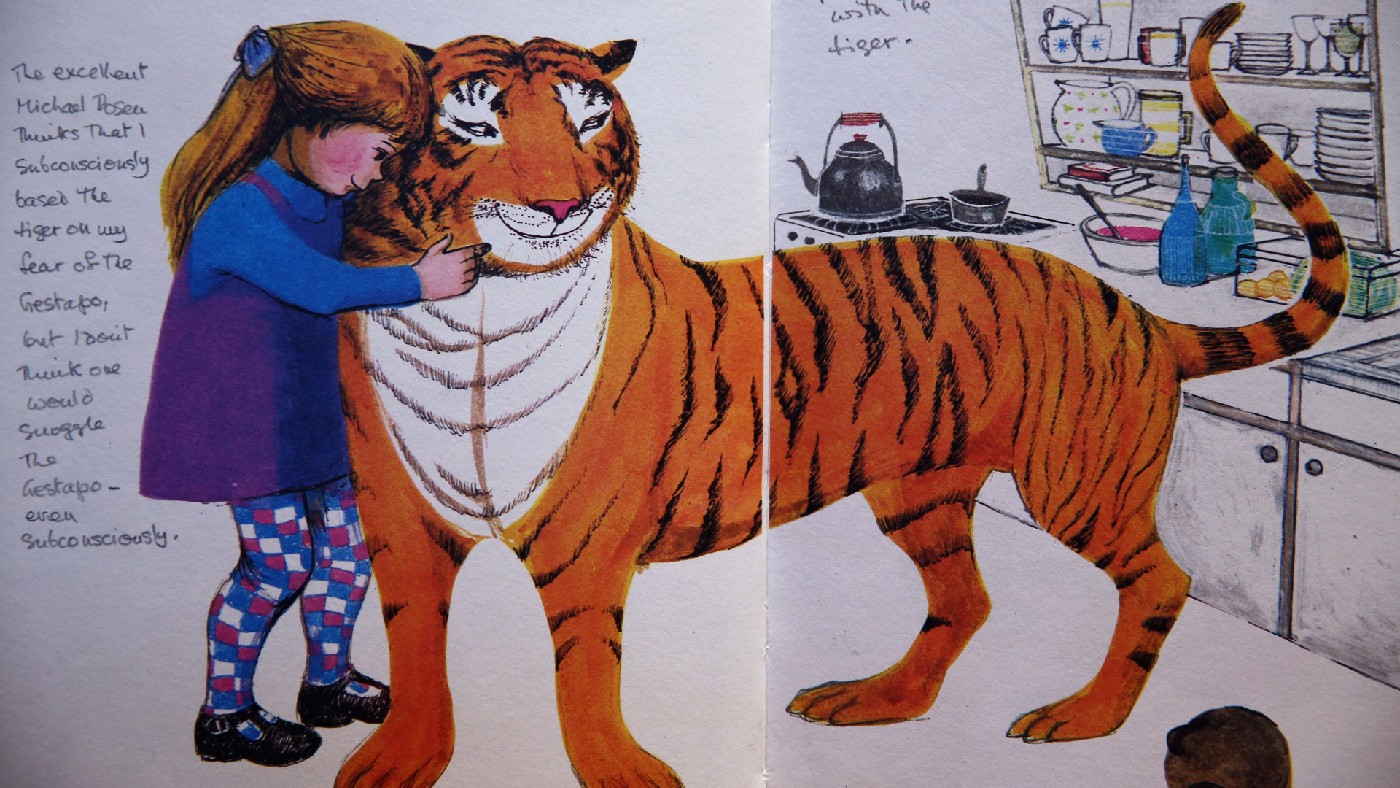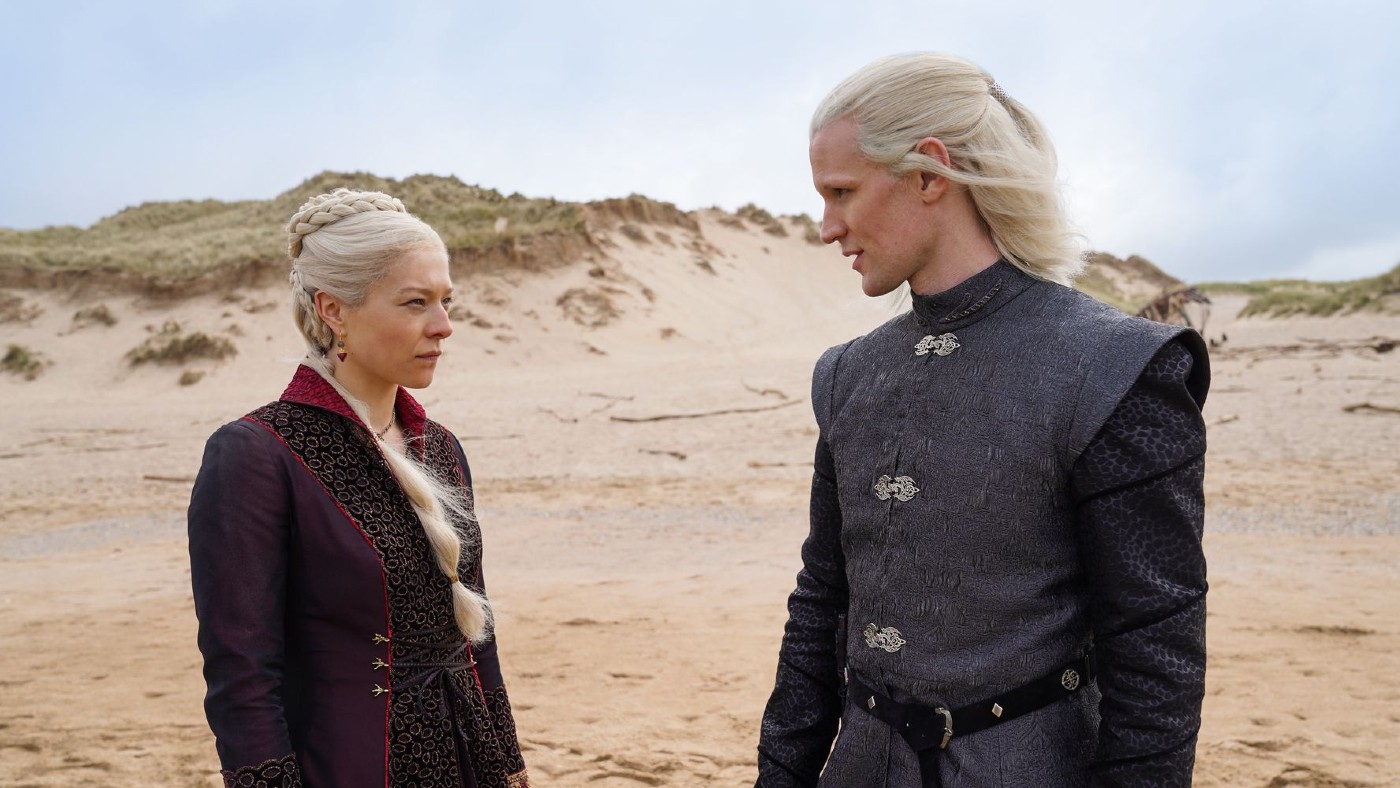‘Peak wonky wokery’: Tiger Who Came to Tea sparks fierce debate on rape
Charity provoked backlash after claiming beloved 1968 book reinforces ‘harmful’ gender stereotypes

A free daily email with the biggest news stories of the day – and the best features from TheWeek.com
You are now subscribed
Your newsletter sign-up was successful
More than half a century after its publication and two years after its author’s death, The Tiger Who Came to Tea has been thrust into the limelight in the latest battle of the so-called culture wars.
The beloved 1968 children’s book, written and illustrated by Judith Kerr, is making headlines after the co-director of a Scottish charity working to end male violence against women claimed that it reinforces dangerous gender stereotypes which in turn reinforce gender inequality.
Books like The Tiger Who Came to Tea may have been published a long time ago, but we are “still replicating these harmful gender stereotypes which have been in our society for a very long time”, Rachel Adamson told BBC Radio Scotland.
The Week
Escape your echo chamber. Get the facts behind the news, plus analysis from multiple perspectives.

Sign up for The Week's Free Newsletters
From our morning news briefing to a weekly Good News Newsletter, get the best of The Week delivered directly to your inbox.
From our morning news briefing to a weekly Good News Newsletter, get the best of The Week delivered directly to your inbox.
“Evidence tells us that gender stereotyping affect girls’ self-esteem and body image and holds them back from advancing their careers,” she said. “Even more strikingly, we know that boys who conform to gender stereotypes are more likely to become perpetrators of violence against women and girls.”
The picture book tells the story of what The Times described as “a greedy talking tiger” who “arrives unannounced at a family home and guzzles all their food and drinks”. It concludes with the father saving the day by taking his wife and daughter to a café for tea, an ending that Adamson claimed is “old-fashioned” and “stereotypical”.
Adamson’s comments sparked a fierce backlash on social media and in the right-leaning press, with The Telegraph’s Robert Taylor describing them as “peak wonky wokery”. “You’re not going to stop sexual assault by taking books out of nurseries,” he wrote, adding, “if you cancel, or burn, The Tiger, you must also cancel or burn just about every children’s book written before about 2010”.
LBC host Nick Ferrari questioned why there was even a conversation about something “make-believe”. Human rights barrister Charlotte Proudman told him books like The Tiger Who Came to Tea have a big “role to play” in forming children’s early understanding of topics like beauty and relationships.
A free daily email with the biggest news stories of the day – and the best features from TheWeek.com
“It’s all about having a conversation about more harmful gender stereotypes and traits that are played out within children’s books,” added Proudman.
“For example, Sleeping Beauty, waiting for the prince to come and wake up this beautiful young woman and bring her back to life, or Cinderella to be rescued from her evil stepmother and sisters, and only a prince of course can do that. Or the Little Mermaid desperately longing after a man.”
Ferrari responded: “Are you honestly going to [claim] that you might actually be looking at someone in court accused of rape because he read books like The Tiger Who Came to Tea as a child?”
Adamson’s interview with the BBC came after her charity, Zero Tolerance, carried out a “gender and diversity audit” of more than 3,000 books in 21 nursery schools. Only three of the libraries were found to have a majority of books that did not promote “gender stereotyping and/or other forms of inequality”, said The Times.
Despite being published 53 years ago, Kerr’s story has remained a firm favourite over the years, retaining a steady position in Amazon’s top 20 bestselling children's books list. A stage adaptation is currently running at London’s Theatre Royal Haymarket and a 24-minute hand-drawn animation of the story is available to watch on Amazon Prime.
Kerr lived to see her book reach its millionth sale before she died at the age of 95 in 2019. “To her mild chagrin, it remained her best-loved single book,” reported The Guardian in her obituary. The Jewish author and her father, a prominent theatre critic and outspoken critic of the rising Nazi party, fled Germany in 1933.
Over the years, it has “been suggested” that the titular tiger reflected Kerr’s experiences as a young child in Nazi Germany, said Jewish News. However, this “was an assertion the writer herself always denied”.
Kate Samuelson is The Week's former newsletter editor. She was also a regular guest on award-winning podcast The Week Unwrapped. Kate's career as a journalist began on the MailOnline graduate training scheme, which involved stints as a reporter at the South West News Service's office in Cambridge and the Liverpool Echo. She moved from MailOnline to Time magazine's satellite office in London, where she covered current affairs and culture for both the print mag and website. Before joining The Week, Kate worked at ActionAid UK, where she led the planning and delivery of all content gathering trips, from Bangladesh to Brazil. She is passionate about women's rights and using her skills as a journalist to highlight underrepresented communities. Alongside her staff roles, Kate has written for various magazines and newspapers including Stylist, Metro.co.uk, The Guardian and the i news site. She is also the founder and editor of Cheapskate London, an award-winning weekly newsletter that curates the best free events with the aim of making the capital more accessible.
-
 ‘Restaurateurs have become millionaires’
‘Restaurateurs have become millionaires’Instant Opinion Opinion, comment and editorials of the day
-
 Earth is rapidly approaching a ‘hothouse’ trajectory of warming
Earth is rapidly approaching a ‘hothouse’ trajectory of warmingThe explainer It may become impossible to fix
-
 Health insurance: Premiums soar as ACA subsidies end
Health insurance: Premiums soar as ACA subsidies endFeature 1.4 million people have dropped coverage
-
 Sport on TV guide: Christmas 2022 and New Year listings
Sport on TV guide: Christmas 2022 and New Year listingsSpeed Read Enjoy a feast of sporting action with football, darts, rugby union, racing, NFL and NBA
-
 House of the Dragon: what to expect from the Game of Thrones prequel
House of the Dragon: what to expect from the Game of Thrones prequelSpeed Read Ten-part series, set 200 years before GoT, will show the incestuous decline of Targaryen
-
 One in 20 young Americans identify as trans or non-binary
One in 20 young Americans identify as trans or non-binarySpeed Read New research suggests that 44% of US adults know someone who is transgender
-
 The Turner Prize 2022: a ‘vintage’ shortlist?
The Turner Prize 2022: a ‘vintage’ shortlist?Speed Read All four artists look towards ‘growth, revival and reinvention’ in their work
-
 What’s on TV this Christmas? The best holiday television
What’s on TV this Christmas? The best holiday televisionSpeed Read From films and documentaries to musicals for all the family
-
 Coco vision: up close to Chanel opticals
Coco vision: up close to Chanel opticalsSpeed Read Parisian luxury house adds opticals to digital offering
-
 Abba returns: how the Swedish supergroup and their ‘Abba-tars’ are taking a chance on a reunion
Abba returns: how the Swedish supergroup and their ‘Abba-tars’ are taking a chance on a reunionSpeed Read From next May, digital avatars of the foursome will be performing concerts in east London
-
 ‘Turning down her smut setting’: how Nigella Lawson is cleaning up her recipes
‘Turning down her smut setting’: how Nigella Lawson is cleaning up her recipesSpeed Read Last week, the TV cook announced she was axing the word ‘slut’ from her recipe for Slut Red Raspberries in Chardonnay Jelly